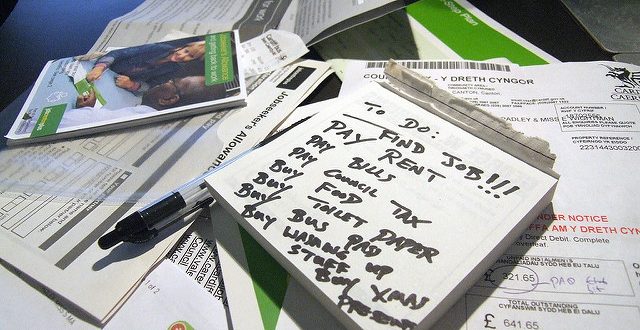Across the Western World there is a growing sense that something is wrong. The economic ‘recovery’ that we have experienced since 2008 feels for all the world like a depression. Despite official GDP figures showing (at least some) growth, more people have been forced to turn to foodbanks (UK) and food stamps (US) to provide their families with sufficient calories. More of us have to turn to in-work benefits to supplement the income from low-paid employment. Fuel poverty is increasing and we have a growing housing crisis.
This translates into the political sphere too. The so-called ‘end of history’ in which politics coalesced around the ‘centre ground’ turned out to be a brief historical blip between the collapse of the Soviet Empire in 1989 and the failure of neoliberalism in 2008. Today we are back to an age of extremes in which a small wealthy elite clings desperately to its privilege while – as a direct consequence – the rest of us experience declining living standards. So they turn to authoritarian centrist parties that seek to crush public opposition using everything from ASBOs to anti-terror laws, while we turn increasingly to the left and right for a solution to our plight. The result is clear across the US (Sander’s, Stein, Johnson and Trump) the UK (Corbyn, Farage and Brexit) and Europe (Syriza, Beppe Grillo, Le Pen, Hofer, Podemos, etc).
For political insiders (those within the ‘Westminster bubble’, the ‘Washington Beltway’ or the ‘Brussels gravy train’) the change is inexplicable. The official figures prove that we are getting better off; and their lived experience is of a gradual increase in standards of living – and the illusion of prosperity that comes from rising property prices.
The explanation is that economists, politicians and journalists are looking at the wrong data. As Jeremy Smith at the World Economic Forum explains:
“In general, since the end of World War 2, in most all so-called advanced economies, there was an almost inexorable upward slope in any chart on GDP per head of population. But over the last decade, and in particular since 2007-08, many countries – and notably those in Europe (especially the Eurozone) have reached a virtual plateau. In a few cases, there is still a tiny, upward glide. In others, the line is flat… And in several cases, the slope is downward.”
Overall GDP may be growing. But since 2008, this growth has been achieved by adding additional people to the population. With per capita GDP falling, all that is happening is that our relative share of GDP is actually going down. In this way, an economy can grow even as its population is getting worse off.
The key reason for this problem is a capital formation crisis. Quantitative easing was meant to kick-start bank lending again. But banks chose to use the money for asset speculation rather than investment; pumping up bubbles in everything from fine art to property, corporate bonds, auto loans and student debt. In any case, the huge overhang in private (household and company) debt since 2008 has dampened down enthusiasm for new borrowing – particularly to invest in new business ventures. Record low interest rates – while making it easier to service existing debt – add to the sense that all is not well, with the result that businesses have been delaying capital investment. As James Howard Kunstler observes:
“Borrowing from the future only works when you have some real prospect of paying the future back… What we face is discontinuity, the end of old spent dynamics and the beginning of new dynamics. Monetary deflation has been underway for years because that’s what happens when debts can’t be repaid: money vanishes.”
Nobody seriously believes that the gazillions of dollars, pounds, euros and yen of private and public debt is ever going to be paid back. The planet that 7.5 billion of us now reside on simply does not have the energy, resources or environmental capacity to allow the kind of industrial expansion that would have to happen to pay back even a small fraction of what is owed.
Our current way of life is unsustainable and our debts are unpayable. The decrease in per capita GDP is our future. The only real question concerns how we are going to respond. We can consciously write off our debt (and mitigate the consequences); shift to a less materialistic culture; and accept a more localised way of life. Alternatively, and much more likely, we will continue with business as usual until such time as the debts become due, the cheap energy and resources are used up, and the Earth itself becomes hostile to human life.




